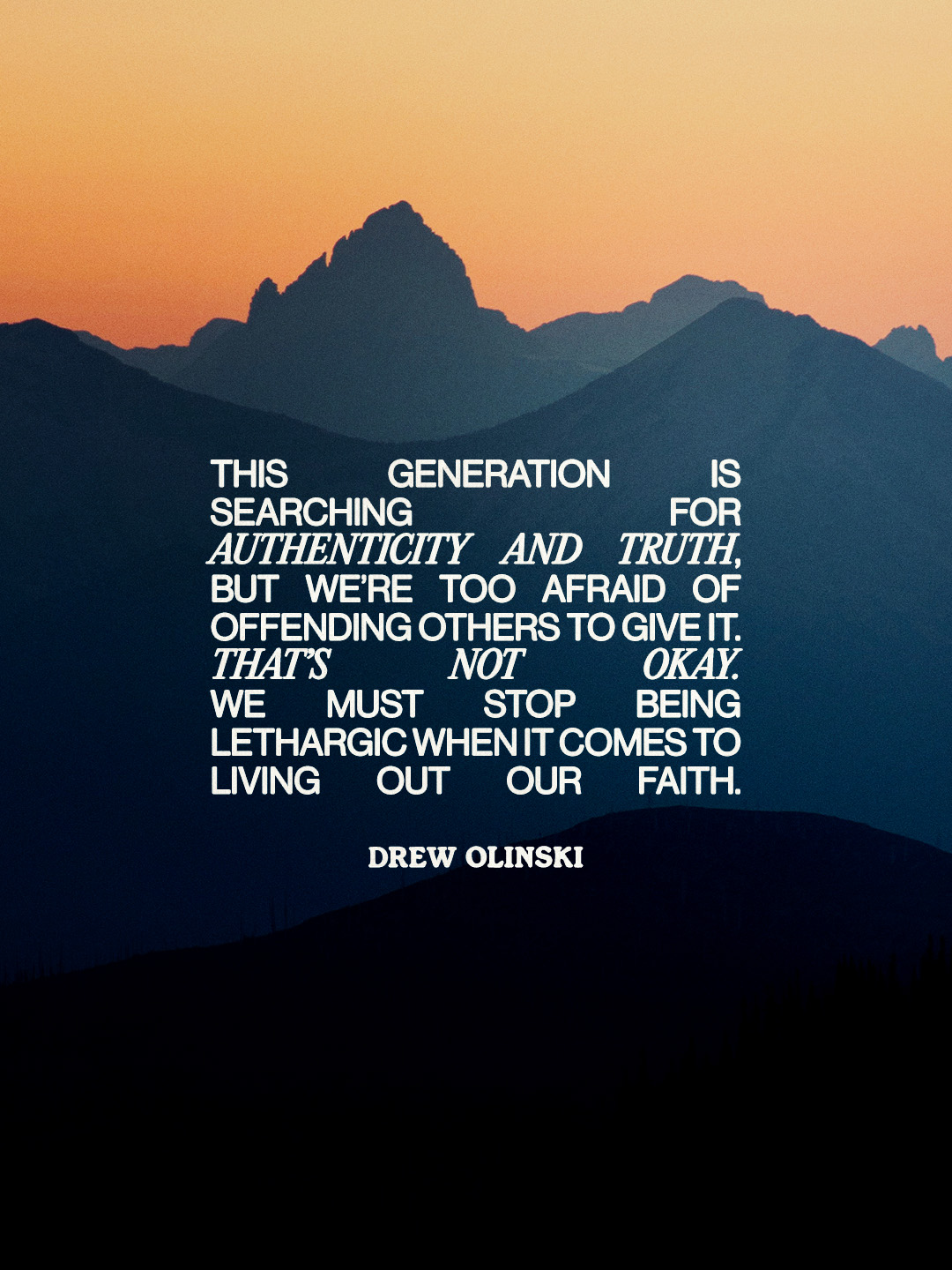How to Stand Firm in a Culture That Worships Self
Pastor Aaron Olinski and Drew Olinski
We’re living in a time when culture loudly proclaims that God is dead. That message is being echoed across media, politics, education, and entertainment. As a result, we’re watching society remove God from everything, leaving space for a different kind of worship: the worship of self.
But do we really understand the depth of what’s happening? What are the consequences of a godless culture? Are we better or worse off than generations before us?
These are the questions we need to consider as we look around and see a society that no longer acknowledges God in daily life.
Removing God from the Picture
Today, it’s not uncommon for people to say, “I’m an atheist and I’m okay with that.” This mindset removes God's presence and power from every aspect of life. Anything that Christ followers might recognize as supernatural or a divine answer to prayer is dismissed as a mere coincidence.
This cultural shift says, “I don’t need your God. I’ll be my own.” It’s not just about disbelief. It’s about replacing God with self. And because humans are worshipful by nature, if it’s not God, it will be something else—usually ourselves.
That’s the spirit of our time: self-idolatry. We are told to trust ourselves, follow our feelings, and chase whatever brings us satisfaction. The result is a society built on emotional truth rather than biblical truth.
The Compromise of a Culture Without God
Politically, spiritually, and morally, we’re watching biblical influence get erased. Prayer is being eliminated from schools and public spaces. God’s standards are being replaced by personal preferences. And in the process, people are willing to compromise on everything.
We compare ourselves to others, adapt to the world around us, and adopt secular worldviews just to be liked. And in doing so, we often lose our identity as believers. Without unshakable truth, we blend into a culture that doesn’t recognize the need for God at all.
We’re so distracted by left and right that we’re forgetting about up and down. We’re ignoring God and wondering why life feels so empty.
When Emotions Become Morality
Culture tells us to do what we want, when we want. If it feels good, it must be right. That’s the narrative. One example might seem harmless at first—a romance movie where a corporate executive leaves her loyal fiancé for the charming hometown guy. But think about it. It’s glorifying emotion over commitment, feelings over morality.
This kind of message says, “If it’s right for me, then it’s right. No one can tell me otherwise.” That way of thinking leaves no room for God. It’s not just about rejecting biblical values; it’s about deciding we no longer need a Savior at all. We believe we’ve found fulfillment in work, relationships, and personal goals.
But the truth is, God is not dead. He is alive, active, and moving. And when we surrender to His leadership, we begin to walk away from the empty promises of culture and into the fullness of God’s purpose for our lives.
The Lordship of Christ: The Only True Solution
Culture may say that God is dead, but we know the solution lies in the Lordship of Christ. If you’re a Christ follower, you’ve already experienced this truth firsthand. There was a moment when you recognized your need for Jesus—when you realized that forgiveness and surrender were the only way forward.
And now you have a story.
Your story is one of the greatest tools you have to defend your faith. You don’t need to have all the answers. You simply need to be able to say, “This is what God has done in me.”
Your Story Is Powerful and It Matters
Ask yourself:
- Where were you before Christ?
- What kind of life were you leading?
- What made you realize you needed Jesus?
- How has your life changed since then?
These questions help you frame your testimony, which is both personal and powerful. When Jesus called His disciples, He didn’t say, “Understand me perfectly.” He said, “Follow me.” Following is an ongoing, active process. It’s not about perfection. It’s about progress and surrender.
And your story, flaws and all, can impact someone else more than you realize.
Don’t Let Shame Silence Your Faith
It’s easy to feel shame over your past. We’ve all made decisions we’re not proud of. But if you’ve experienced salvation and are living differently now, then don’t let that shame keep you from sharing your story.
God is intentional. He puts people in our path who need to hear what we’ve been through. Maybe you’ve experienced a moment when someone said, “I needed to hear that.” That’s not a coincidence. That’s God using your story in an incredible way.
So be bold about your testimony. Be proud of what God is doing in your life. Because we need it now more than ever.
Conclusion: Stand Firm in Who Jesus Is
We’re not called to be perfect, but we are called to stand firm—in our faith, in God’s truth, and in who Jesus is. Culture may try to silence that truth. It may elevate emotion and self over Scripture and surrender. But we know the real truth:
God is not dead. He is alive, and He is still changing lives.
And your story is living proof.
Let it be heard.


